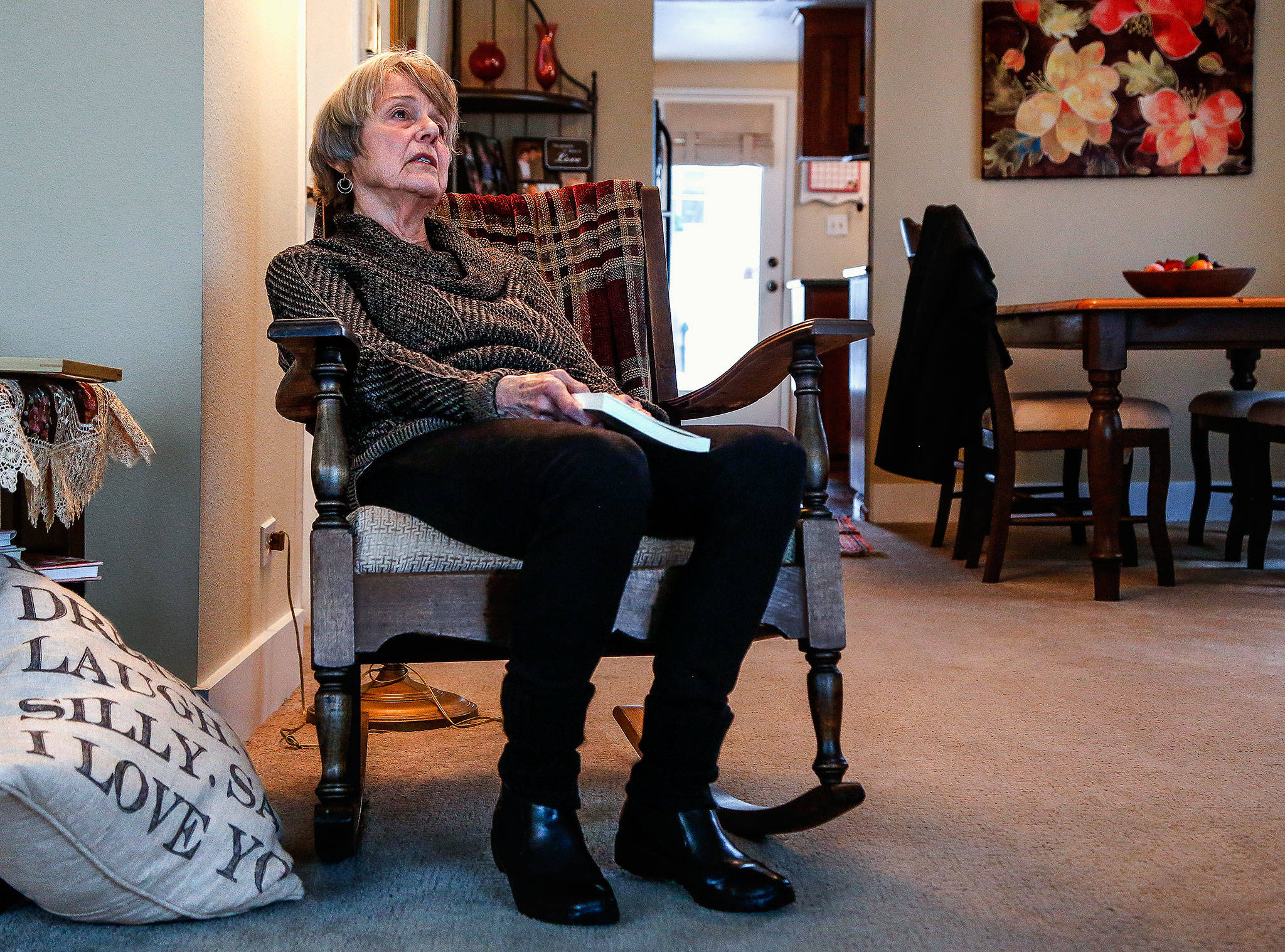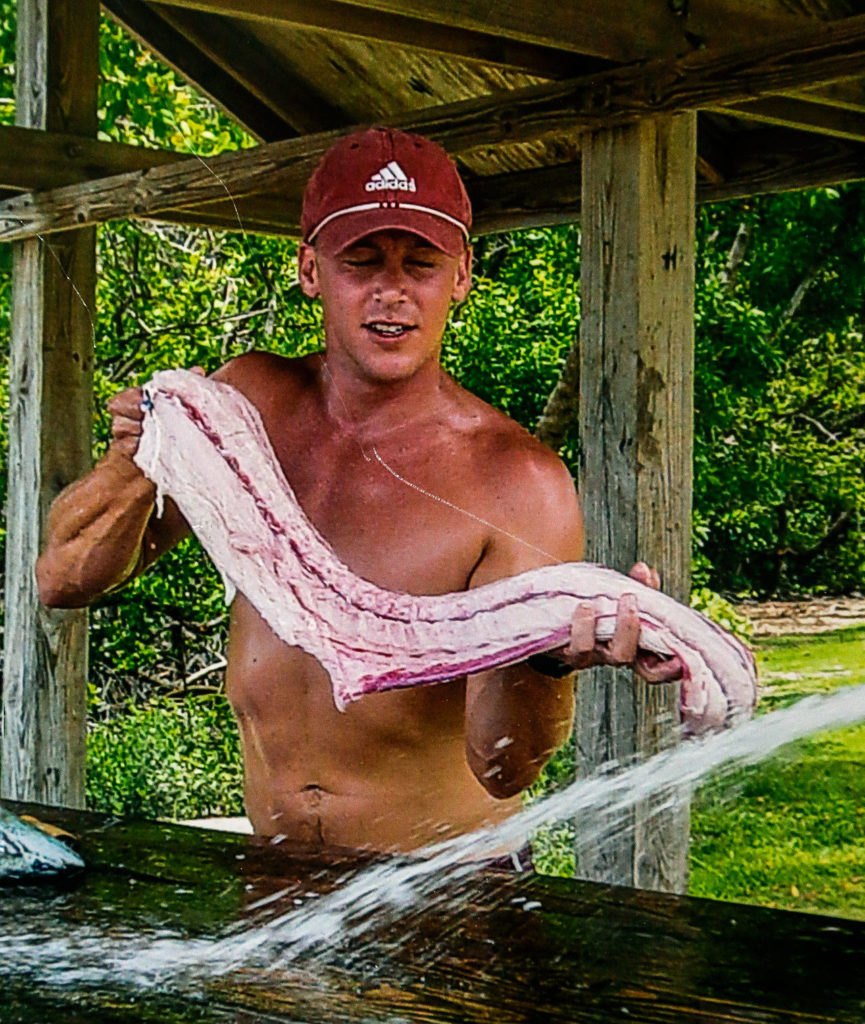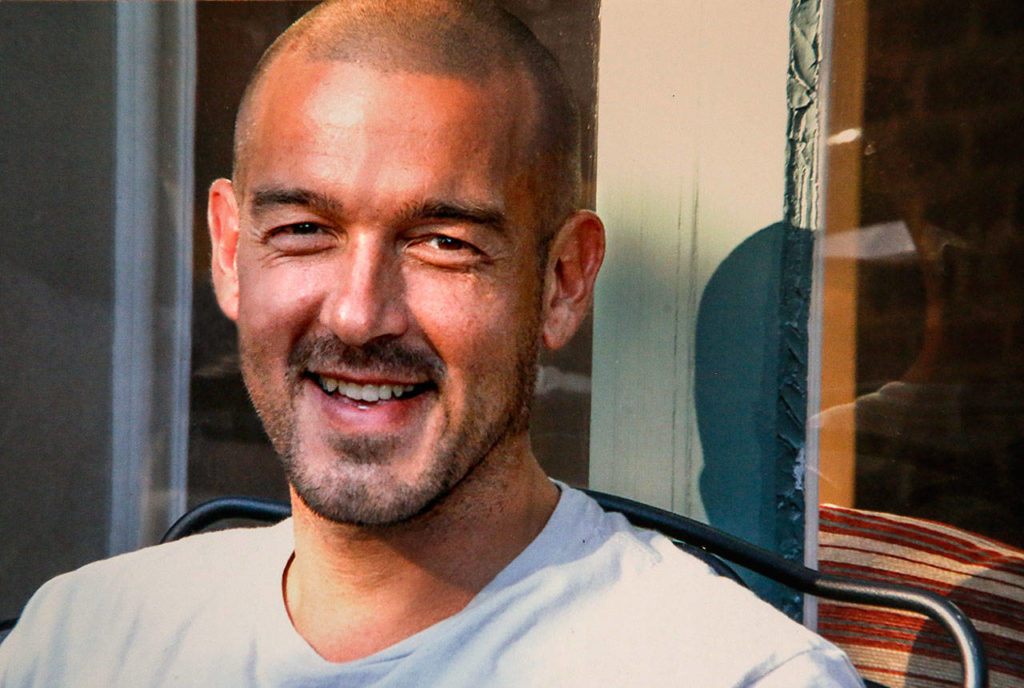Gretchen Saari has lost two sons.
Edward Saari was 45 when he died in 2017. “Ed added life, energy and love to this world,” his obituary said.
Jeffrey Saari, Ed’s younger brother, had died nearly eight years earlier, in January 2009. He was 33. His obituary described him as an exuberant man who loved fishing and “drew his family into a whirlwind of fun.”
Their mother is haunted by what those tributes don’t say. Both men were tormented by addiction. They died of heroin overdoses.
The Everett woman is making her way through the dark shadows of grief. A retired school counselor who spent 23 years in the Lakewood district, Saari, 76, practices meditation and yoga. Seeking peace and wisdom, she contemplates daily readings. And she works in her yard, creating what she calls “my healing garden.”
“I dig in the dirt,” Saari said. In her north Everett home, from her rocking chair, she talked Thursday about her sons’ struggles with drugs and alcohol.
There were years of pain but also years of hope: drug-related crimes, jail and prison time, job and marriage loss, treatment that sometimes helped, and cycles of sobriety and relapse.
As she takes deliberate steps toward her own healing, Saari volunteers at the Everett Recovery Cafe. It’s a haven for people who have dealt with substance abuse. And she hopes to connect with others who have lost loved ones to addiction. Saari would like to start a local group of the nonprofit GRASP, Grief Recovery After a Substance Passing.
And she wants to change the conversation around substance abuse, how it is perceived and how sufferers and their families are treated.
“I’m passionate about the stigma that families experience, in the (hospital) emergency department, in treatment centers, everywhere,” Saari said. “Because I believe, as far as the opioid crisis, if families were empowered rather than told to look inward and find out what’s wrong with them, it would be better for everyone.”
It is excruciating to share details of her tragedies, but Saari wants others to know they aren’t alone. There are thousands of others, right here in Snohomish County.
Last month, The Daily Herald published news of a Snohomish Health District report estimating that between 5 and 10 percent of county residents either are addicted to opiates or misusing them. It found that 5,000 to 10,000 people in Snohomish County suffer from addiction, which the report calls “opioid use disorder.” In 2017, 100 deaths in the county were opioid-related.
“Both were likable and unique,” Saari said of her sons. She now wonders if they had bipolar disorder. Ed and Jeff both graduated from Inglemoor High School in Kenmore.
Ed was drinking as a teen, and went to treatment while in high school. With Jeff, trouble came slowly. “I remember one time Jeff didn’t make it to a guitar lesson,” she recalled. The teacher suspected he’d been smoking marijuana.
She remembers Jeff as outspoken and energetic. In junior high, he organized a walkout after she took him to a peace march.
Jeff Saari died in a Miami hotel room on Jan. 7, 2009. “He had a used needle still in his hand,” Saari said. He had moved to Florida because his father, now deceased, lived there. He was 9 when his parents divorced. In Florida, he worked selling accounting software.
The month before he died, Jeff, his wife and his older brother had spent Christmas 2008 at Saari’s Everett home. She remembers a happy time when both were in treatment. “Jeff had 18 months clean. He was so proud,” she said.
Saari does remember Jeff wanting to go to a casino while here. Back in Florida, she thinks he may have won some money gambling right before he died.
“After Jeff, I knew that Ed could die,” said Saari, recalling the horror of that realization. She also has a surviving eldest son.
“Ed was a joker,” well-liked and at times “a wild man,” she said. He married someone he’d met right out of high school and had a son, now in his 20s. Saari said his marriage ended because of his drinking and pot-smoking.
He earned a Microsoft certification and worked in sales for a software company, but Saari said drugs cost him his job. He sold a house, cashed in retirement savings, and got involved with a woman who used crystal meth.
By 2007, Ed was on the streets in Seattle. He ended up at a mission in White Center and embraced Christianity. He invited his mother, his former wife and his son to his baptism. “And we went,” Saari said. But he left the mission, and back on the street was involved in a drug-related crime. It landed him in detention and detox in King County, his mother said.
Ed was clean in 2008, but relapsed. “He had changed from meth to heroin,” she said.
There were many attempts at recovery. Ed spent time in Portland, where he was helped by the Central City Concern organization and was put on methadone and a psychotropic medication. He enrolled at Portland State University and had a work apprenticeship, but couldn’t maintain either effort.
He inherited money after his father died. There was an expensive try at methadone detox, but without after-care he was back on the opioid through a clinic in Bothell.
For some time, Ed lived with his mom in Everett. Saari remembers his pain, and his desire to get off drugs and get a job. There were also good walks with Ed, and good talks. “I’m grateful to have been given those times,” she said.
Pioneer Center North, a residential treatment facility in Sedro-Woolley, was one of Ed’s last stops. He was there in November 2016. “He wanted to go to treatment, a detox ride through hell,” Saari said.
He wanted to be rid of heroin, methadone and Suboxone, used to counter addiction, and possibly to work as a drug counselor.
By April 2017, there was hope and a new home. Ed was staying in an Oxford House, a drug-free home, in Lynnwood. “They loved him at the Oxford House. He did landscaping,” Saari said. He lived there until he died on July 2, 2017. “Heroin is such a strong drug,” she said.
Saari’s home is neat and quiet. It evokes serenity.
Early in our talk, she broke a silence by playing a song on her cellphone — the one called “Vincent” by Don McLean. About the painter Vincent van Gogh, it begins “Starry starry night.” Saari listened intently to the words: “Now I understand what you tried to say to me,” and “They would not listen, they did not know how, perhaps they’ll listen now.”
The song hints at why Saari is sharing her staggering losses.
“We have to tell our stories. It’s the stories that have the healing and the answers,” she said. “Some good will come of this. Stay open and listen, maybe to the people we disapprove of — the people who are suffering.”
Julie Muhlstein: 425-339-3460; jmuhlstein@heraldnet.com.
Learn more
Information about GRASP, Grief Recovery After a Substance Passing at: www.grasphelp.org
Talk to us
> Give us your news tips.
> Send us a letter to the editor.
> More Herald contact information.



























